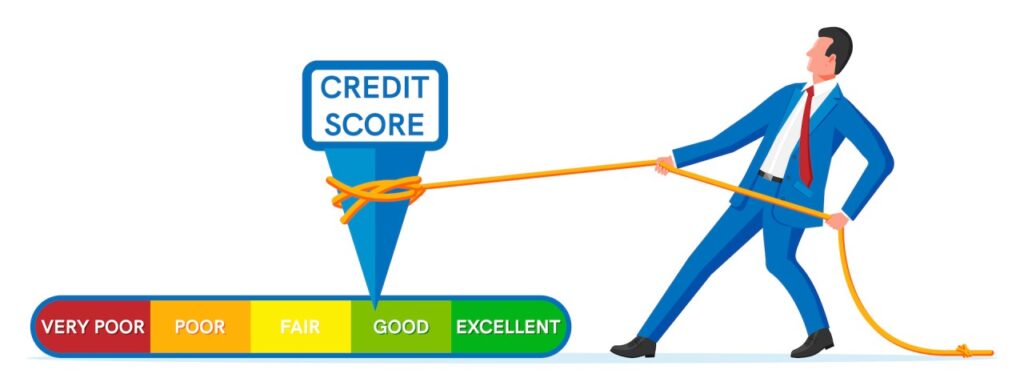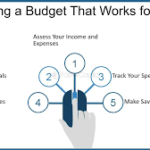Introduction to Credit Scores
Your credit score is one of the most important numbers in your financial life. It affects your ability to get loans, rent an apartment, or even land certain jobs. A good credit score can help you secure better interest rates on mortgages, car loans, and credit cards, potentially saving you thousands of dollars in interest over the years. On the other hand, a poor credit score can result in higher interest rates, loan rejections, or even the inability to access credit when you need it.
But what exactly is a credit score, and how can you improve it? In this article, we’ll break down the basics of credit scores, why they matter, and what steps you can take to boost yours.
What is a Credit Score?
A credit score is a numerical representation of your creditworthiness. Lenders, landlords, and even some employers use this score to evaluate your financial behavior and determine the level of risk they would be taking by engaging with you. A credit score typically ranges from 300 to 850, with higher scores indicating better creditworthiness.
The most common credit score models are:
- FICO Score: Created by Fair Isaac Corporation, this score is the most widely used by lenders. It ranges from 300 to 850.
- VantageScore: Developed by the three major credit bureaus (Equifax, Experian, and TransUnion), this score also ranges from 300 to 850.
Your credit score is calculated based on several factors, which we’ll explore below.
Factors That Affect Your Credit Score
1. Payment History (35%)
Your payment history is the most significant factor affecting your credit score. This category includes your history of making on-time payments for credit cards, loans, mortgages, and other debt obligations. Late or missed payments can have a negative impact on your score, and defaults or bankruptcies can remain on your credit report for several years.
2. Credit Utilization (30%)
Credit utilization is the ratio of your current credit card balances to your total available credit limit. It’s calculated by dividing the balance on your credit cards by the total credit limit across all of your cards. A high credit utilization ratio (e.g., using more than 30% of your available credit) can signal to lenders that you’re overextended and may be a riskier borrower.
Keeping your credit utilization low—ideally below 30%—can positively impact your credit score.
3. Length of Credit History (15%)
The length of your credit history refers to how long you’ve been using credit. A longer credit history is seen as more favorable because it gives lenders more data to assess your creditworthiness. If you have a history of managing credit well over many years, it can help boost your score.
4. Types of Credit Used (10%)
This factor considers the variety of credit accounts you have, such as credit cards, mortgages, student loans, and auto loans. Having a mix of different types of credit (referred to as a “credit mix”) is generally seen as positive by credit scoring models, as it indicates that you can handle various types of debt responsibly.
5. New Credit (10%)
Each time you apply for a new credit account (such as a credit card or a loan), a hard inquiry is made on your credit report. While a single inquiry may only have a small impact on your score, too many inquiries within a short period can signal to lenders that you are in financial distress or taking on too much new debt. It’s a good idea to limit new credit applications, especially if you’re trying to improve your score.
Why Is Your Credit Score Important?
Your credit score affects many aspects of your financial life, from borrowing money to renting an apartment. Here’s how a good credit score can benefit you:
1. Lower Interest Rates
The higher your credit score, the more likely you are to qualify for loans at favorable interest rates. This is because lenders view you as a low-risk borrower who is more likely to repay the loan on time. For example, a borrower with a high credit score may qualify for a mortgage with an interest rate of 3%, while a borrower with a low credit score might be offered 5% or higher. Over the life of the loan, this difference in interest rates can add up to thousands of dollars in savings.
2. Easier Access to Credit
A good credit score makes it easier to be approved for credit cards, personal loans, and other types of credit. Lenders are more likely to trust that you will repay the borrowed funds, so they are more willing to offer you credit. A low credit score, on the other hand, may result in credit denials or higher rates and fees.
3. Better Rental Opportunities
Many landlords check prospective tenants’ credit scores as part of the rental application process. A strong credit score signals to landlords that you’re financially responsible and more likely to pay rent on time. With a poor credit score, you may find it harder to rent an apartment, and some landlords may require a larger deposit or co-signer.
4. Employment Opportunities
Some employers check credit scores during the hiring process, especially for positions that involve financial responsibilities. While a bad credit score won’t automatically disqualify you from a job, it could be a red flag to potential employers, particularly if the position requires handling money or financial transactions.
How to Improve Your Credit Score
Improving your credit score is a process that takes time and discipline. Here are several strategies you can use to boost your credit score:
1. Pay Your Bills on Time
The most important thing you can do to improve your credit score is to make timely payments. Late payments, defaults, or bankruptcies can have a lasting negative impact on your score. Set up reminders or automate payments to ensure you never miss a due date. Consider using a credit monitoring service to track your payment history and alerts for upcoming bills.
2. Reduce Your Credit Utilization
If you’re carrying high credit card balances, work on paying them down. Aim to keep your credit utilization ratio under 30%—the lower, the better. If possible, try to pay off your balances in full each month to avoid interest charges and improve your credit score.
If you can’t pay off your entire balance, consider transferring high-interest debt to a credit card with a lower interest rate or consolidating your debt with a personal loan. This can help you pay down your debt more efficiently.
3. Avoid Opening Too Many New Credit Accounts
As mentioned earlier, each time you apply for credit, it can trigger a hard inquiry on your credit report. While one or two inquiries may not have a significant impact, multiple inquiries can lower your score. Only apply for credit when absolutely necessary, and try to space out applications over time.
4. Keep Old Accounts Open
The length of your credit history plays a role in your credit score, so it’s important to keep older accounts open, even if you no longer use them. Closing old accounts can reduce your credit history length and increase your credit utilization ratio, potentially lowering your score. If you must close accounts, avoid closing your oldest ones.
5. Diversify Your Credit Mix
A diverse credit mix can help improve your credit score. If you only have credit cards, for example, you may want to consider taking out a small loan (such as a personal loan or car loan) to diversify your credit mix. However, this strategy should be used cautiously and only when necessary.
6. Regularly Check Your Credit Report
Check your credit report at least once a year to ensure there are no errors or inaccuracies. Mistakes, such as incorrect late payments or accounts that don’t belong to you, can hurt your credit score. If you find any errors, dispute them with the credit bureaus immediately.
7. Work with a Credit Counselor
If you’re struggling to improve your credit on your own, consider seeking help from a certified credit counselor. These professionals can help you develop a personalized plan to manage your debt and improve your credit score over time. Many nonprofit organizations offer free or low-cost credit counseling services.
Conclusion
Understanding your credit score and how it’s calculated is essential to managing your financial life. A good credit score can open doors to lower interest rates, easier access to credit, and even better job opportunities. While improving your credit score takes time and effort, the rewards are well worth it.
By consistently paying your bills on time, reducing your credit utilization, avoiding too many credit applications, and keeping an eye on your credit report, you can steadily improve your credit score and set yourself up for long-term financial success.

